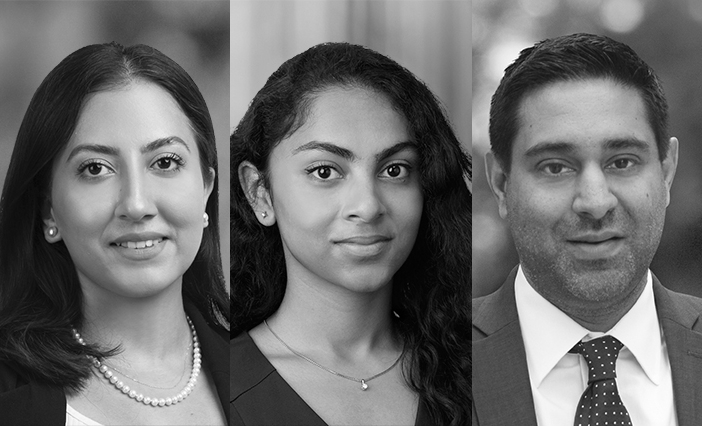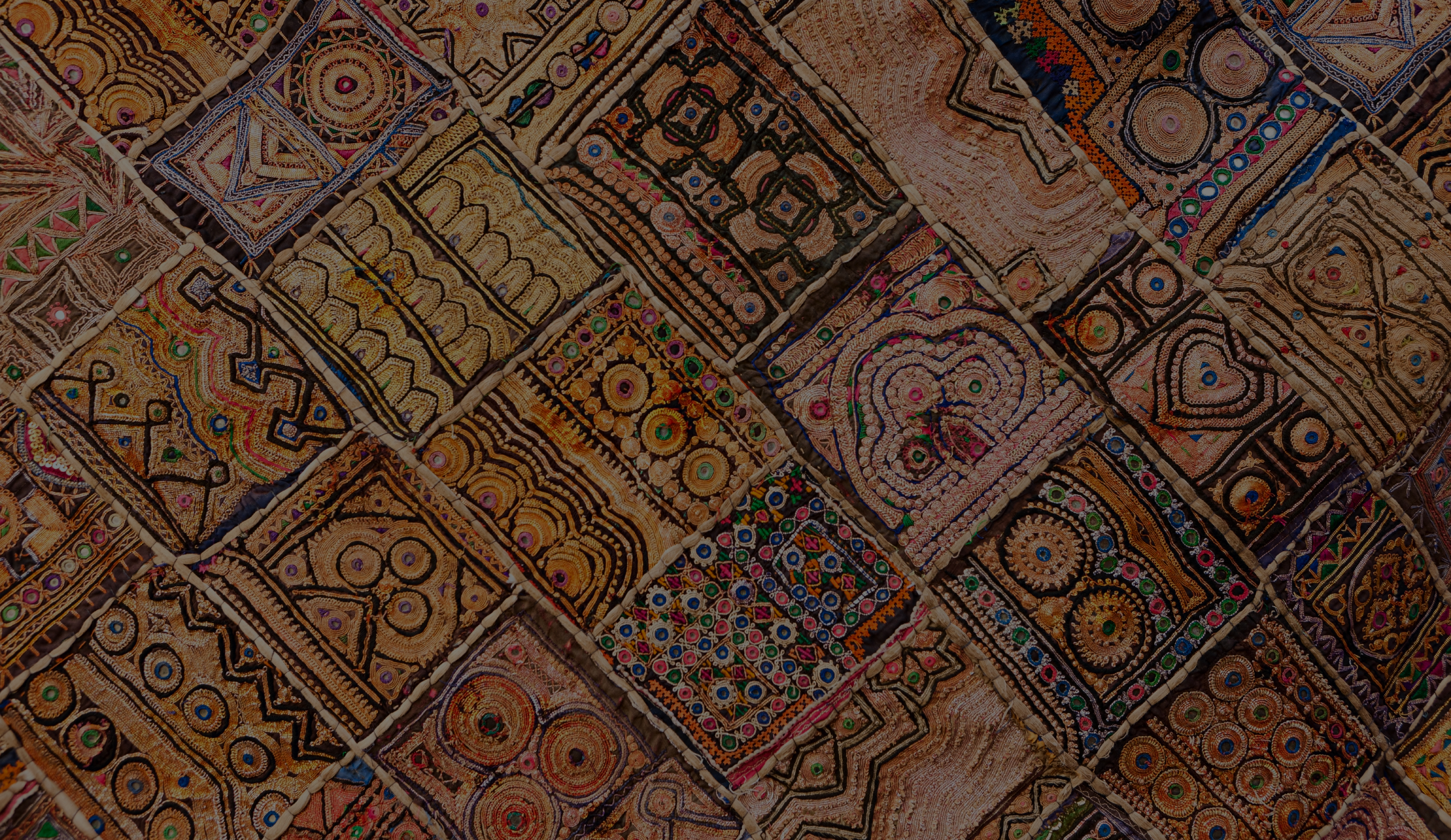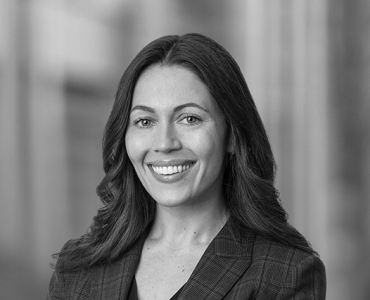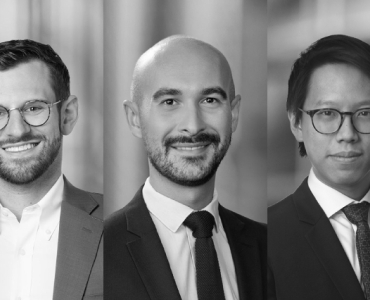
July 2024: "Free to Be Me" is the theme of this year's South Asian Heritage Month. We asked members of the Firm's Asian Affinity Network to reflect on the significance of the month to them. Let's hear from Sakshi Kumar (Manager, Diversity & Inclusion – Asia-Pacific, Hong Kong) Shruthi Madhusudan (Trainee Solicitor, London) and Shiva Sandill (Partner, Chicago).
How do you express your South Asian identity in your daily life?
Sakshi Kumar: I incorporate traditional Indian attire into my wardrobe, especially during cultural festivals and important events. You might see me wearing a red or black sacred thread around my wrist or vermillion on my forehead. Additionally, I often share and enjoy South Asian cuisine with colleagues and friends, fostering a cultural exchange. I am never too busy for chit chat and chai!
Shruthi Madhusudan: I express my South Asian identity by cooking Indian food at home and wearing my grandmother's jewelry, which is of an Indian style.
Shiva Sandill: Through learning and building community. Given the abundance of diversity within our communities, we are always learning about and from each other.
What does it mean to you to feel "Free to Be Me"?
SS: To be authentic; to be true to myself. Not having to conform, rather being free to express my individuality, and leveraging my unique qualities to achieve success without having to change who I am or having to pretend to be someone else.
SM: For me, feeling "free to be me" is to live my life without the fear of judgment or negative social stereotypes.
SK: Being able to preserve and express my cultural heritage without feeling othered and having the confidence to integrate my South Asian identity into both my personal and professional life. I have lived in Hong Kong for almost two decades too.
Have you ever faced challenges in being your authentic self due to cultural expectations or societal norms?
SM: When I was younger, I was self-conscious of my natural curls (85 percent of Indians have curly or wavy hair) and I even went as far as chemically straightening my hair to "fit in." As I grew up and met some amazing role models, I understood that my hair is part of my identity, and I should embrace it.
SK: I have experienced preconceived notions about South Asian women, such as being overly family-focused and may not be as committed to their careers, which can impact perceptions of their reliability or long-term professional ambitions. I've found that it can help address misconceptions by openly communicating my values, sharing about my cultural traditions and my professional goals with my peers and leaders.
SS: Yes, in both a professional and educational environment, as well as in social settings. After some introspection, I realized that switching between my authentic and inauthentic self was exhausting—for me, the solution was not commonality, but understanding that appreciating and promoting my authentic self would lead to better performance, mental health and self-confidence.
What advice would you give to someone who is trying to balance their cultural heritage with their professional life?
SK: I think the question of balancing implies that there may be competing priorities. My cultural heritage has shaped my core beliefs and, over the years, I have either adapted or integrated these into my own unique identity. So, my advice would be to find ways to integrate markers of your cultural heritage into your life. In the professional space, it can be helpful to seek out a supportive community that values diversity and inclusion, as it is also important that one feels safe to express/be themselves.
SS: Be you. Personally, and professionally, you want to be in an inclusive environment—an environment that builds trusts, fosters open communication and values diversity, which ultimately leads to increased collaboration and productivity.
SM: My advice would be to not be afraid about explaining your heritage to colleagues and, instead, use every conversation as a chance to share your rich culture with someone else. You would be surprised how many people are interested in learning about other cultures and how speaking about one's identity can deepen connections.
How has the Asian Affinity Network, or the wider Firm culture and values, helped you feel supported to celebrate your identity and do your best work?
SK: The Asian Affinity Network has provided a platform for cultural celebration and professional development, where I can thrive while being true to my South Asian roots. For example, the global Diwali celebration provided an opportunity for a few South Asian colleagues in the Hong Kong office to share the significance of this festival with everyone.
SM: The focus on being "human" is present throughout the Firm, with all colleagues being treated with respect and cultural identities being celebrated. A highlight for me was the Diwali celebration in the London office.
Looking ahead, how do you plan to continue embracing your authentic self while honoring your South Asian heritage?
SM: A small personal goal of mine is to start taking more pride in my name and trying to help colleagues pronounce my name, and other South Asian names, correctly.
SK: I plan to continue participating in cultural events, mentoring young professionals from similar backgrounds. I am looking forward to supporting an intern from Asian University of Women this summer and by connecting with colleagues across this diverse region to promote initiatives that strengthen inclusion within the Firm.





